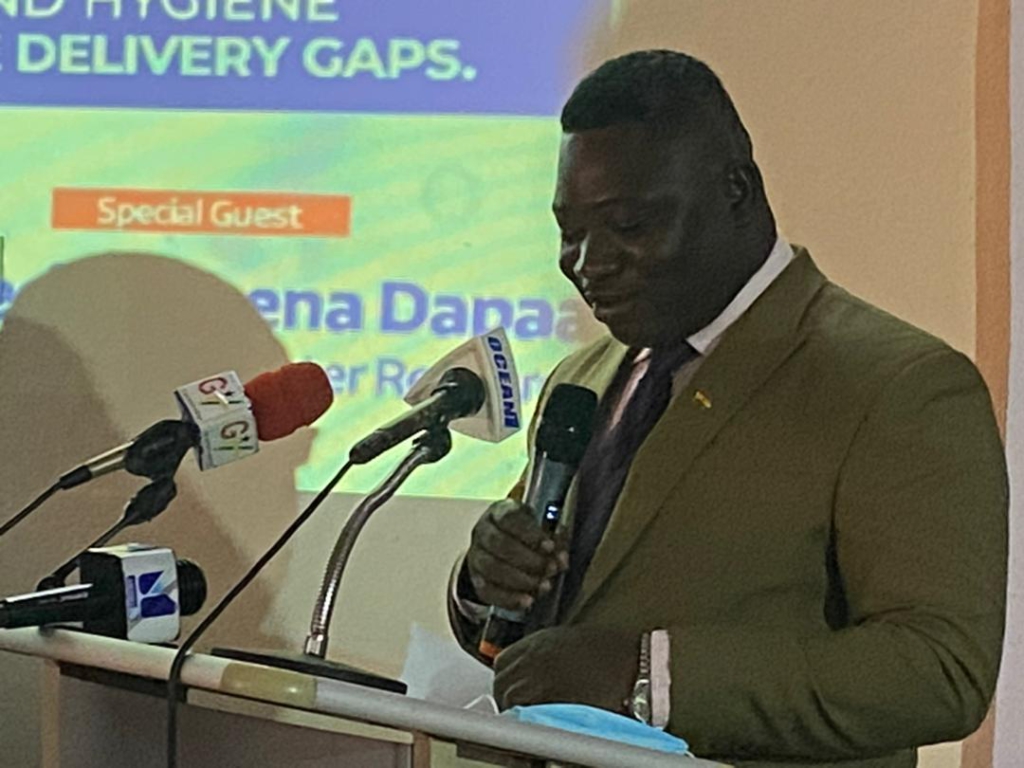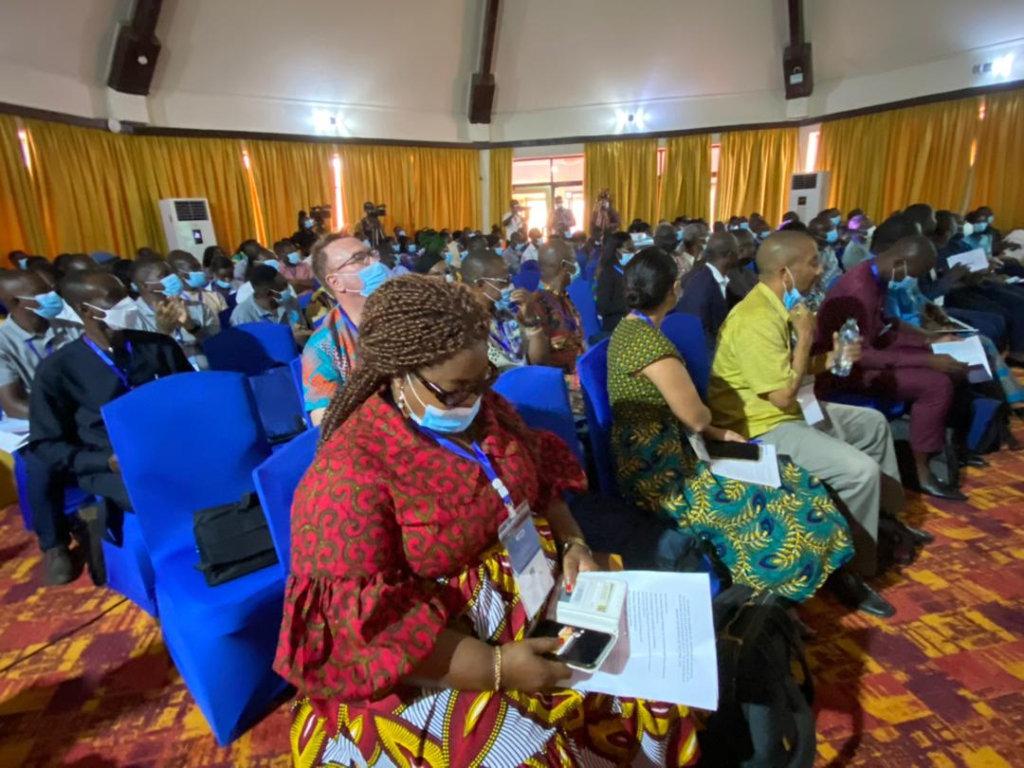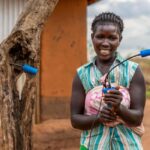Minister for Sanitation and Water Resources says the pressure on the ministry as stakeholders to take whatever steps necessary to provide universal access to sanitation and water supply even before the 2030 deadline has never been higher.
Cecilia Abena Dapaah says the ministry was admonished not to leave anyone behind by the United Nations’ historic proclamation in 2010 through Resolution 64/292, which recognised access to basic water and sanitation as a universal human right.
To reach predetermined goals, Madam Dapaah is urging more focus on providing comprehensive district-wide sanitation services.
She emphasised that in order to achieve these goals, everyone must work together in a coordinated, economical, and inclusive manner.

Speaking on behalf of Madam Dapaah at this year’s Mole XXXIII WASH Conference in Cape Coast, Deputy Minister for Sanitation and Water Resources, Issahaku Chinnia Amidu said, Ghana’s performance towards the SDG 6, according to the global SDG dashboard, indicates moderate improvement, “which if this same momentum is maintained, it may not be sufficient to reach our set goals by 2030. A careful look at our country-specific data, the Population and Housing Census presents an interesting case; the case where for instance, access to household toilets, which had reduced from 48% in 2000 to 46% in 2010, suddenly took an upward trend of 59% in 2021, thanks to the ambitious collaborative interventions and hard work of all of you gathered here.”
Mr. Amidu stated, “To put this into context, this 13-percentage point increase translates to an additional one million households who now have access to household toilets, which includes both exclusive and shared use.”
He said, the theme set for this year’s edition, which is “Ghana’s commitment to Water, Sanitation and Hygiene: Connecting systems to bridge service delivery gaps”, situates well within Ghana’s collective goal of achieving universal access to safe water and sanitation for all by 2030.
The Deputy Minister also highlighted the need to commit more resources to the ministry to deliver the services to citizens, especially when, “we are left with only eight years to the SDG end line. This requires more efforts towards effective targeting to enable us to understand the very people we are delivering WASH services to.”
Mr. Amidu disclosed that, “A minimum of 2 billion US dollars is required in capital investments to meet our SDG target on Sanitation.”

The breakdown, according to Mr. Amidu includes; construction of household toilet facilities estimated at 1.41 billion US dollars, and sanitation services including emptying and treatment estimated at 103.3 million US dollars.
It also includes US$ 85.1 million and US$146 million for providing schools and healthcare facilities respectively with sanitation facilities.
“Sanitation projects totaling 500 million US dollars have been implemented in Ghana since 2010. About 60 percent of this investment has focused mainly on non-sewered sanitation and condominium sewerage. It would take some additional funding to bridge the existing gap in safely managed sanitation.”





